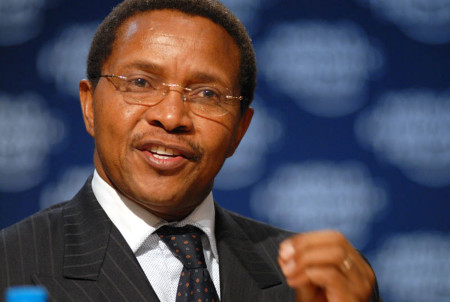Tanzania’s president Jakaya Kikwete is among several African leaders to send condolence messages to Nepali counterpart, Dr Ram Baran Yadav, following the tragic earthquake that hit the country on Saturday leaving over 3,000 presumed dead.

In his message, the president said he learnt with profound shock and deep sorrow the sad news of a 7.8 magnitude earthquake that hit Nepal, which apart from claiming thousands lives, devastated buildings and centuries old temples.
“The tragedy is not only for the loved ones of those who perished, but also for all the Nepali people and their friends. As a country therefore, our thought and prayers are with the people of Nepal in this time of grief,” he noted.
According to the statement issued yesterday (Monday) by the Foreign Affairs and International Cooperation’s Ministry, president Kikwete also offered deep condolences to the victims of the powerful earthquake and also sincere sympathies to the injured and families of the victims.
International media agencies reported on Monday that vast tent cities have sprung up in Nepal’s capital, Kathmandu, for those displaced or afraid to return to their homes as strong aftershocks continued.
Officials have warned that the number of casualties could rise as rescue teams reach remote mountainous areas of western Nepal. Initial reports suggest that many communities, especially those close to mountainsides, suffered significant quake damage.
Tremors from the 7.8 magnitude quake were also felt across the region, as far afield as Pakistan, Bangladesh and neighbouring India. Rescue missions and aid are arriving in Nepal from abroad to help cope with the aftermath of the earthquake, the worst to hit Nepal for more than 80 years.
Efforts to dig victims out from under the rubble of collapsed buildings in Kathmandu are also continuing. Aid flights are coming in rapidly. Indeed, Kathmandu airport is running out of parking bays, leading to many aircraft having to wait before getting permission to land.
And at the Pashupatinath temple, one of the city’s oldest, cremations have been taking place since morning. As the death toll rises, the authorities are keen on disposing of the bodies as quickly as possible to prevent a health hazard.










